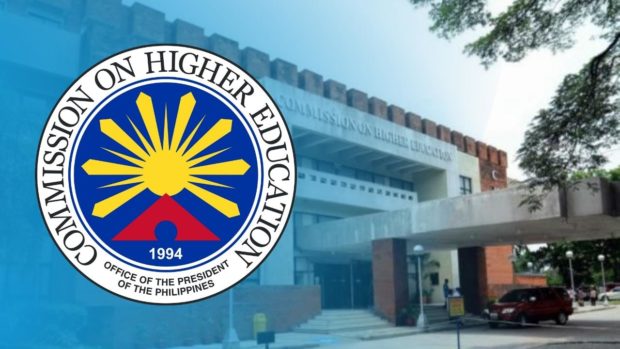
MANILA, Philippines — The House committee on appropriations has asked the Commission on Audit (COA) to conduct a special audit of the Commission on Higher Education (CHEd) and its funds, after the agency presented varying data regarding its unpaid debt to private schools.
During Tuesday’s deliberations on CHEd’s P31 billion 2024 proposed budget, Northern Samar Rep. Paul Daza made a motion asking for the special audit since CHEd gave the committee different figures on their payables to private higher education institutions (HEI) — which accommodated students from areas without state universities and colleges (SUCs) or local universities and colleges (LUCs).
Daza was referring to the numbers dictated by committee senior vice chair and Marikina 2nd District Rep. Stella Quimbo — who noted that before the budget deliberations, CHEd said that their payables were worth P1 billion.
Quimbo said that at the budget talks last August 23, the number increased to P13 billion before dwindling to only P7.7 billion on Tuesday.
“May I ask the CHEd, because I think we’re all frustrated with the situation, I don’t think we’ve spent more time than CHEd than any other agencies, Chairman (Mark) Go’s here, we’ve had I think two or three hearings on the similar issues, we’ve had two oversights, this is now the second budget hearing, to clarify this, would the CHEd voluntarily submit to a COA audit along with DBM [Department of Budget and Management] just so we can once and for all we can get the right answers to all these concerns?” Daza said.
“I move that the committee on appropriations request a special audit immediately that would involve giving the right answers on the four issues that were articulated by vice chair Quimbo and (Janette) Garin, along with the DBM,” he added.
The motion was seconded by members present, while no one objected to the motion.
In an interjection before the hearing ended, Quimbo said that COA gave a verbal acknowledgement of the special audit on CHEd’s finances.
Paying for 2021 dues
It was also revealed at the budget deliberations that CHEd’s payables for students under the Unified Student Financial Assistance System for Tertiary Education (UniFAST) include liabilities for school year 2021 to 2022 — which CHEd tried to pay using its 2023 budget.
Committee vice chairperson Garin, however, asked DBM Director Grace delos Santos whether that is possible and legal.
“Can we use the 2023 funds? […] My understanding Ma’am with regards to scholarship, if that is for the year they are considered scholars, they should pay using the budget allocated for that year,” delos Santos said in Filipino.
“Because schools operate on an academic year, but our appropriation is annual. So for academic year 2021 to 2022, the scholarship dues for the first semester should have been paid using the budget in year 2021. For the second semester, using the budget year 2022, that’s how it goes,” she added.
CHEd Chairperson Prospero de Vera III said that they intend to pay the school year 2021 to 2022 dues using the 2023 budget, by providing a P40,000 subsidy to students enrolled since 2021 and are still enrolled for school year 2022 to 2023.
Meanwhile, freshmen students in 2022 would only get a P20,000 subsidy. All in all, 191,739 students enrolled in 2021 would be covered.
“There are two cohorts that will be given. One cohort is second-year students who have been enrolled since 2021, so we give them P40,000 to cover both 2021-2022 and 2022-2023. The second cohort is freshman students who were enrolled in 22-23, and we used 2023 money for them because that is still covered by the academic year,” he added
Garin however maintained that what de Vera said contradicts what the DBM official stated: that a particular annual budget can only be used for the corresponding school year. But the CHEd chief insisted it was the best solution they could come up with.
“That is still the same because the point of reckoning is the time when you paid, the point of reckoning is if it’s being used for the previous school year which is not aligned to the 2023 allocation,” Garin said.
“Madam Chair, that is the best that we can give upon the instruction of Congress. If it will be disallowed by DBM then we will not pay it, that’s our promise,” de Vera said.
HEIs asking CHEd to pay the tuition fees of scholars, which are supposed to be subsidized by the government, is not new. Last May, de Vera admitted that SUCs are demanding over P2 billion in supplemental funds as the schools experienced an enrollment spike after the COVID-19 pandemic.
Then in September 2022, CHEd asked for an additional P12.5 billion funding to support 205,584 new grantees under the Tertiary Education Subsidy (TES) for students enrolled in private schools.